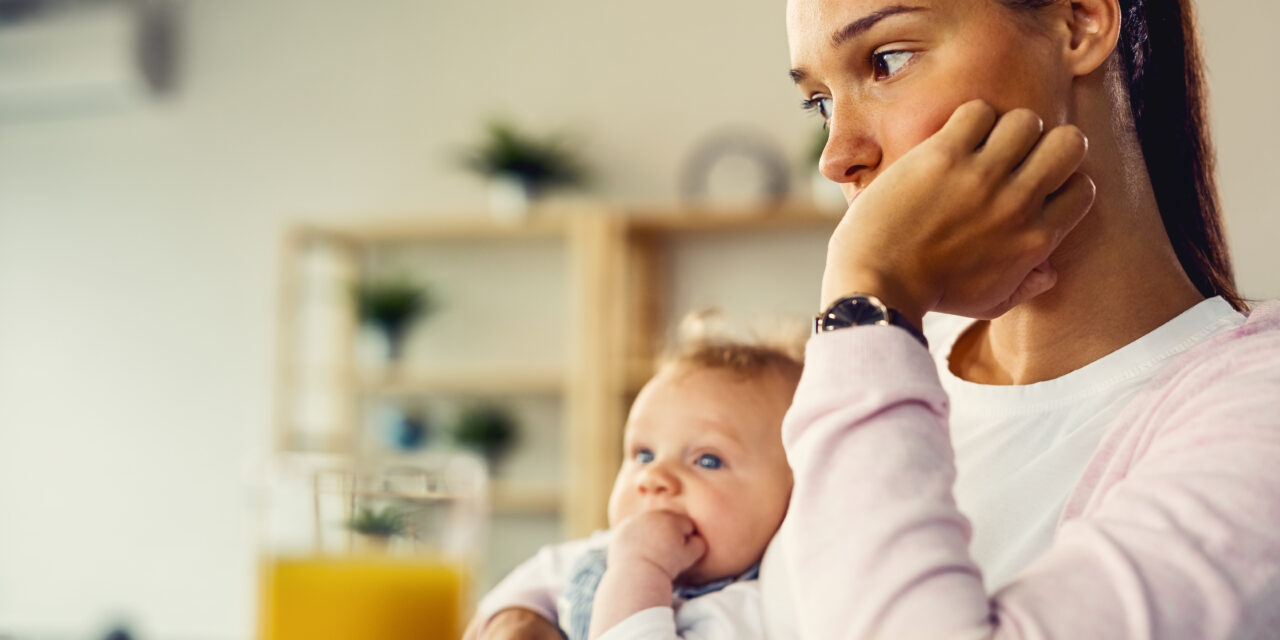Postpartum depression is a serious mental health condition that can affect both men and women after childbirth. We often think that women only experience postpartum depression, but it can affect anyone who has recently become a parent.
While many people are familiar with the term, few know the symptoms.
Since May is Mental Health Awareness Month, we want to discuss the most common and least common symptoms of this type of depression. We also want to emphasize the importance of seeking help if you are experiencing any of these symptoms.
What is postpartum depression?
Postpartum depression is a type of clinical depression that can affect new parents. It usually starts within the first few weeks after childbirth, but it can begin up to six months post-delivery.
The birth of a baby is a happy and exciting time for most families. But for some, it can be a time of great stress and adjustment. Parents may feel overwhelmed, tired, and anxious. These feelings are normal. But postpartum depression is more than the “baby blues.”
Postpartum depression can hurt both mothers, fathers, and children. It can cause problems with bonding, sleeping, eating, and taking care of the baby.
Unlike baby blues which can last only a couple of weeks, this type of depression can last for months if left untreated.
Women are more likely to experience postpartum depression than men. According to a health journal, it is estimated that 1 in 7 mothers have postpartum depression.
While postpartum depression is more common in women, men can also experience this type of depression. It is estimated that 1 in 10 fathers can experience depression, anxiety, and other mental health issues after the birth of a child.
What are the symptoms of postpartum depression?
The symptoms of postpartum depression can vary from mild to severe.
Common symptoms include
- Feeling sad, anxious, or empty
- Loss of appetite
- Crying more than usual
- Intense mood swings
- Irritability or anger
- Withdrawing from friends and family
- Loss of interest in activities you once enjoyed
- Difficulty bonding with your baby
- Feeling hopeless, worthless, or helpless
- Thoughts of harming yourself or your baby
Uncommon symptoms may include
- Hallucinations
- Disorientation
- Paranoia
- Excessive Energy
- Aggressive behavior
If you are experiencing any of these symptoms, it is essential to seek help from a mental health professional.
What causes postpartum depression?
The exact cause of postpartum depression is unknown. But some factors may contribute to the development of this condition, such as:
Hormonal changes
After childbirth, there are drastic changes in hormone levels. Estrogen and progesterone levels drop quickly after birth. These changes can impact a person’s mood and energy levels.
Sleep deprivation
Having a baby can be exhausting. New parents often have trouble sleeping, leading to fatigue and irritability. This, eventually, can lead to depression.
Stress
The stress of caring for a newborn and the lack of sleep can be overwhelming.
Previous history of depression or anxiety
If you have had depression and anxiety in the past, you are more likely to experience postpartum depression.
How is it Diagnosed?
If you are experiencing symptoms of postpartum depression, it is very important to see your doctor.
Your doctor will ask you questions about your symptoms and how they impact your life. They will also want to rule out other conditions causing your symptoms, such as the baby blues or post-traumatic stress disorder (PTSD).
Blood tests such as thyroid level tests may be done to rule out other health conditions.
If you are diagnosed with postpartum depression, your doctor will likely recommend a treatment plan that may include medication and/or therapy.
How is it Treated?
Postpartum depression is treated with a combination of medication and therapy.
The most common type of medication prescribed is antidepressants. Antidepressants work by changing the levels of chemicals in the brain. This can help improve mood and alleviate symptoms.
If you are breastfeeding, it is essential to talk to your doctor about the risks and benefits of taking medication. Some antidepressants can pass into breast milk and may affect the baby.
In addition to medication, therapy may also be prescribed. Therapy can provide support and guidance as you adjust to parenthood. It can also help you develop coping and problem-solving skills.
Cognitive-behavioral therapy (CBT) is the most common therapy used to treat postpartum depression. CBT is a short-term, goal-oriented therapy that can help you identify and change negative thinking and behaviors.
With treatment, most people with postpartum depression get better within a few months.
How To Prevent Postpartum Depression?
There are things you can do to help prevent postpartum depression, such as:
Getting enough sleep
Try to get at least six hours of sleep every night. If possible, take a nap during the day.
Eating a healthy diet
Eating healthy foods can help improve your mood and energy levels.
Exercising
Regular exercise can help reduce stress and improve your mood.
Asking for help
Don’t be afraid to ask for help from family and friends. Let them know what you need, whether it’s a break from the baby or help with household chores.
Final Thoughts
Parents struggling with postpartum depression often feel like they are failing as a parent. It is important to remember that depression is not your fault.
If you think you may be experiencing symptoms, it is important to talk to your doctor. Having the proper support and treatment can make a big difference. With help, you can get better and enjoy your new baby.
















